Quartzy: the faces and heels edition
Happy Friday!
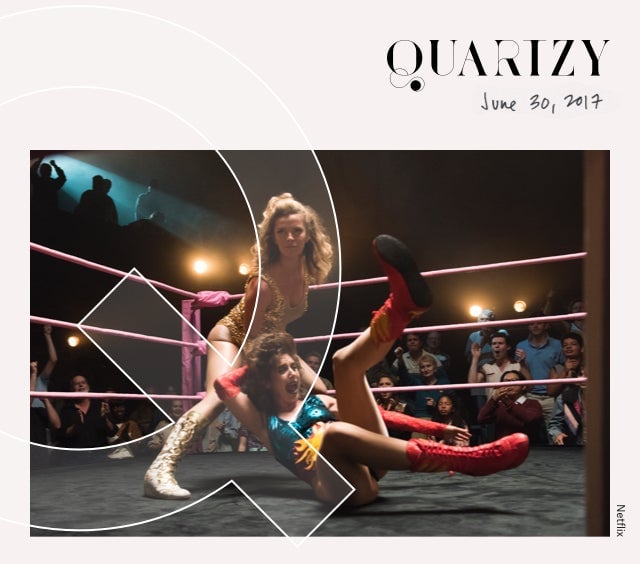
Happy Friday!
And a warm hello from me, Quartz Ideas editor Sarah Todd. I’m subbing for the illustrious Jenni Avins, who’s on vacation this week.
Summer weekends can feel like a lot of pressure. Scrolling through photos of my friends swigging frosé or spread out on the lawn at outdoor concerts, I’m filled with irrational FOMO. Even when I’m out having fun, I feel like a clone of myself should be living it up somewhere else. “Why am I not playing paintball in upstate Vermont?” I think, forgetting that I have been told I would not enjoy that, because it is painful. “Why am I not on a paddleboat?”
But there can be a blissful liberation in giving yourself a pass from living your best life, and instead holing up in your air-conditioned apartment for 48 hours straight. And so it was that I spent last weekend binge-watching an entire season of the new Netflix series GLOW.
GLOW, starring Marc Maron and Alison Brie, is based on the true story of a scrappy group of misfit women who rose to TV stardom as professional wrestlers in the 1980s. As Emily Nussbaum writes in The New Yorker, it’s also a story about women discovering, and fighting against, their “types”—about trying to reconcile the gap between the way the world sees you and the way you see yourself.
As the women are sorted into “faces” (heroes) and “heels” (villains) with cartoonish characters they will embody in the ring, they confront stereotypes about their race, size, and appearance. Most of them find ways to subvert or push back against those classifications. And at least one—Ruth, a struggling actress whose neediness tends to repel people—winds up embracing the chance to play a villain who feeds upon hate from the crowd instead of love.

The ways we typecast ourselves. In an essay for Glamour, actress Betty Gilpin, who plays the blonde bombshell Debbie on GLOW, writes about her poor self-image in her teens and 20s—first as a socially anxious sidekick, and then, after puberty transformed her into a sexy “Jessica Rabbit,” as a “terrified tiny person trapped beneath the blonde and boobs.”
It wasn’t until booking GLOW and learning the art of wrestling, she writes, that she found a “type” that felt right: a strong, athletic woman who draws from the collective power of her collaborators.
“It was a magical never-never land run by type-A Amazons,” she writes of her experience on the GLOW set. “I saw power and care together for the first time. Seeing women possess those two things simultaneously was a huge lesson for me.”
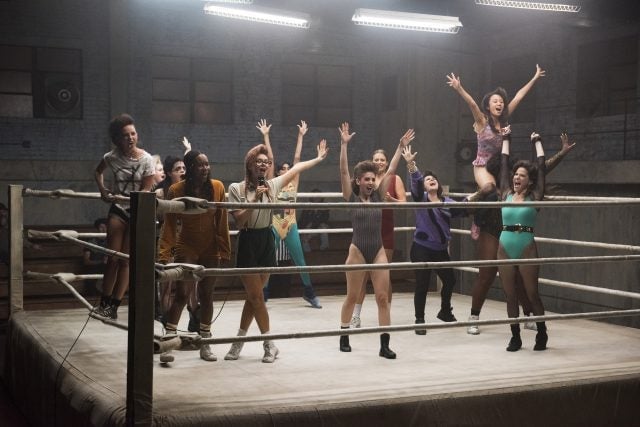
Dismantling the fortress. Roxane Gay’s new memoir, Hunger, details the lifelong project of learning to be comfortable in your own skin—particularly when many other people are eager to judge you. The book’s focus is Gay’s body: the body that the American writer and professor inhabited as a young black girl, before she was brutally raped; and the body she created afterward, as she became fat in an effort to protect herself.
“I needed to feel like a fortress, impermeable,” she writes. “I did not want anything or anyone to touch me.”
Today, Gay no longer wants to be a fortress. She would like to lose weight, feel healthier, and live a more active life. But at the same time, she condemns a society that does not want to make space for a person like her, and which tells her in the design of its chairs, the clothing it sells, and the cruel comments from strangers in the grocery store that it “cannot accommodate a body like mine.”
In a profile in Elle, Gay explains that she’s not asking for much from the world. “Kindness,” she says. “And people minding their own goddamn business.”
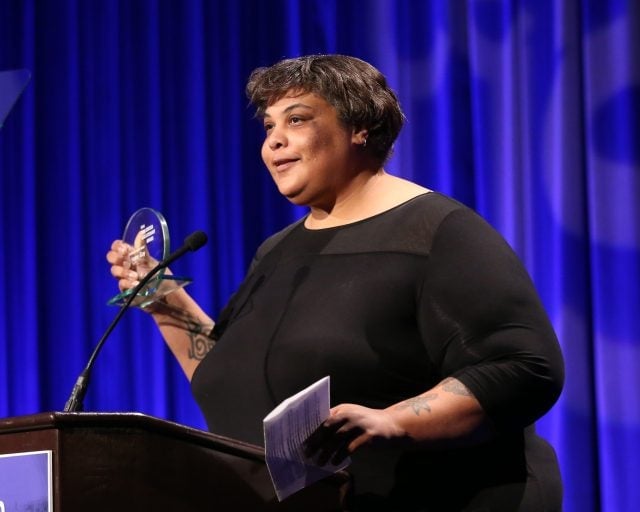
Kindness is a rallying cry in the Hufflepuff house. This week marked the 20th anniversary of JK Rowling’s Harry Potter series, and many wizarding fans took to social media to declare their affinity with one of the four houses at the magical boarding school of Hogwarts.
I took the opportunity to offer a defense of Hufflepuff, home to hardworking, compassionate wizards who enjoy a good snack. That can sound decidedly unglamorous compared to the traits associated with the other three houses (brave Gryffindors, intellectual Ravenclaws, and ambitious Slytherins). And indeed, comedian Mindy Kaling once declared, “Nobody wants to be a Hufflepuff.”
But interviews with self-identified Hufflepuffs reveal that there are plenty of people who take pride in belonging to a group that’s humble, generous, and determinedly egalitarian. As my Quartz colleague Elan put it, “Why isn’t it exciting to be told that you’re a kind person?”
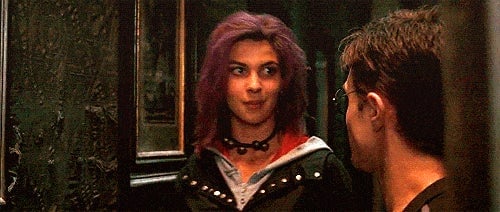
America’s ghostwriters. Ahead of Fourth of July this weekend, Hamilton creator Lin-Manuel Miranda released an energizing rallying cry celebrating the immigrants who built, and continue to shape, American life. The new music video for “Immigrants (We Get the Job Done),” a track off The Hamilton Mixtape album, features performances by K’Naan, Residente, Riz MC, and Snow Tha Product.
The artists push back against nationalistic narratives about who has a “right” to emigrate. Riz MC raps: “Cool, they flee war zones, but the problem ain’t ours/ Even if our bombs landed on them like the Mayflower/ Buckingham Palace or Capitol Hill / Blood of my ancestors had that all built.”
Listen up! And have a great weekend.


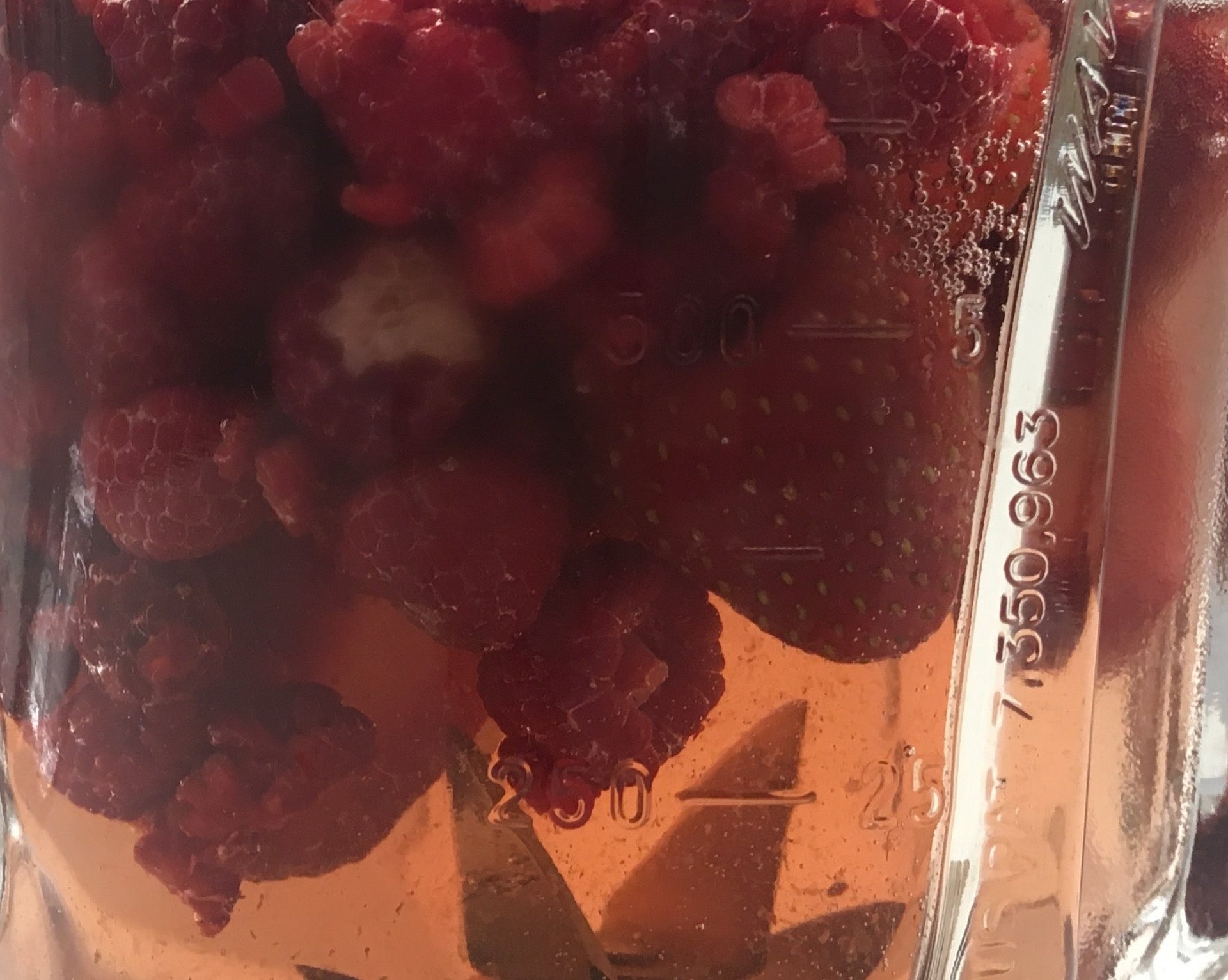
Party cocktails for procrastinators. Whether you’re hosting friends this weekend or laying low, there’s no time like the present to get in on frosé—the most Instagram-friendly drink of the summer.
Ideally, you freeze rosé in a baking pan overnight to get the right icy texture, then blend it with your pre-made home-infused strawberry syrup. But if you—like me—prefer instant gratification, here’s a quick-cheat recipe:
Pour a chilled bottle of rosé into a sturdy blender, and combine with a few handfuls of frozen strawberries and/or other frozen fruits of your choice. (Frozen raspberries made for a tart, tangy addition in our test run.) Toss in two cups of ice and sweetener to taste—about three tablespoons of sugar worked well for me, and honey would do just as well. Blend until you reach the perfect slushie consistency.
With steps this simple, my biggest challenge was dealing with brain freeze when I slurped too quickly.